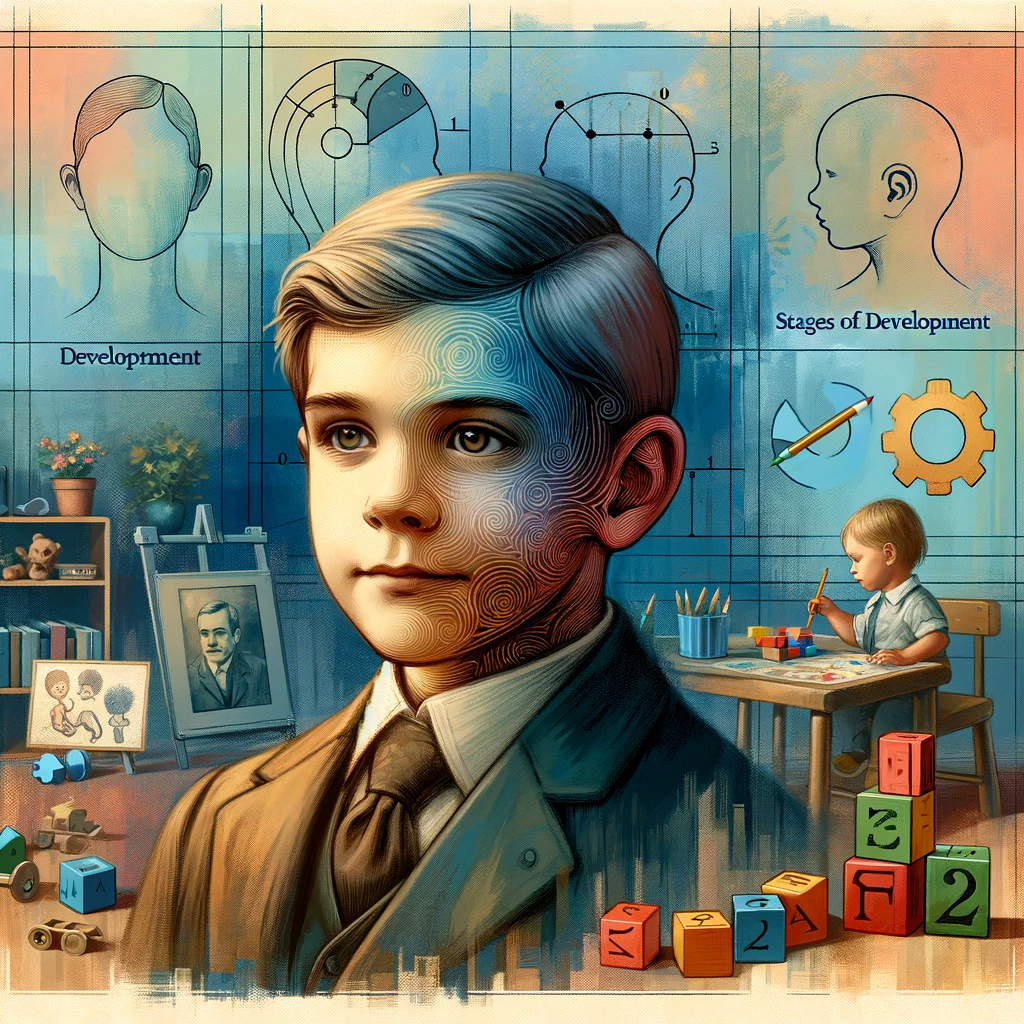“Portraits of Insight: Poster Tributes to 20 of Psychology’s Innovators
In the intricate search for understanding of human thought and behavior, there have been remarkable individuals who have not only grasped our minds patterns but also redefined them. “Portraits of Insight” is a visual and intellectual homage to 20 such innovators in the field of psychology, each of whom has carved a unique niche in the understanding of the human psyche. This series of captivating posters is more than just art; it is a celebration of ideas, a chronicle of discovery, and a tribute to those who have illuminated the corridors of the mind.
These innovators, from the depths of the unconscious mind explored by Sigmund Freud to the revolutionary behaviorist approaches of B.F. Skinner, have shaped the contours of psychological thought. Each poster in this collection is a window into their world, capturing the essence of their theories, the impact of their contributions, and the spirit of their intellectual pursuits.
As you embark on this visual journey, you will encounter a blend of art and science, where the legacy of these pioneers is brought to life through vibrant imagery and insightful narratives. This collection is designed not just for those well-versed in psychological theories but for anyone who appreciates the complexity of the human mind and the figures who have dedicated their lives to exploring it.
Stroll into this gallery of innovation and insight. Let each portrait guide you through a story of discovery, challenge, and understanding, paying homage to the great minds who have shaped our understanding of the human condition.
Poster Tributes to 20 of Psychology’s Innovators
1. Sigmund Freud: Unveiling the Unconscious Mind

Sigmund Freud is known as the father of psychoanalysis, Freud revolutionized the understanding of the human psyche. His theories of the unconscious mind, defense mechanisms, and the Oedipus complex are foundational in psychological thought.
2. “B.F. Skinner: Architect of Behaviorism”

B.F. Skinner was a leading behaviorist who is renowned for his work on operant conditioning and his concept of reinforcement, which greatly influenced educational and psychological practices.
3. “Jean Piaget: Mapping the Child’s Mind”

Jean Piaget’s theory of cognitive development, which outlines how children’s thinking evolves in stages, has been crucial in understanding child psychology and education.
4. “Carl Jung: Exploring the Depths of the Psyche”

Carl Jung, a contemporary of Freud, developed analytical psychology, introducing concepts like the collective unconscious and archetypes, emphasizing the spiritual and mystical dimensions of the psyche.
5. “Carl Rogers: The Humanistic Visionary”
Carl Rogers was a founder of humanistic psychology, Rogers emphasized the importance of free will, self-actualization, and the therapeutic relationship in client-centered therapy.
6. “Ivan Pavlov: The Symphony of Classical Conditioning”

Ivan Pavlov is best known for his work on classical conditioning, Pavlov’s experiments with dogs laid the groundwork for understanding associative learning.
7. “Wilhelm Wundt: Father of Experimental Psychology”

Wilhelm Wundt often called the “father of modern psychology,” Wundt established the first psychology laboratory and greatly contributed to the development of psychology as a distinct scientific discipline.
8. “Erik Erikson: Stages of Psychosocial Evolution”

Erik Erikson is known for his theory of psychosocial development, Erikson’s model outlines eight stages of psychological development throughout the lifespan, each characterized by a specific challenge.
9. “Albert Bandura: The Mentor of Observational Learning”

Albert Bandura is famous for his work on social learning theory and the concept of self-efficacy. His Bobo doll experiment demonstrated the impact of observational learning.
10. “John B. Watson: Behaviorism’s Trailblazer”

John B. Watson, a pioneer of behaviorism, is known for his controversial “Little Albert” experiment, which demonstrated that emotional responses could be conditioned.
11. “Abraham Maslow: Architect of Human Motivation”

Abraham Maslow introduced the hierarchy of needs, which represents different levels of human motivation, culminating in self-actualization.
12. “Elizabeth Loftus: Memory’s Illusions Unveiled”

Elizabeth Loftus’s research on memory has had a profound impact, particularly her work on the malleability of human memory and the misinformation effect.
13. “Kurt Lewin: The Dynamics of Group Psychology”

Kurt Lewin is known as the father of social psychology, Lewin developed field theory and was a pioneer in the study of group dynamics and organizational development.
14. “Lev Vygotsky: The Social Sculptor of Mind”

Lev Vygotsky emphasized the social aspects of learning and cognitive development, introducing concepts such as the zone of proximal development.
15. “Hans Eysenck: Personality’s Biological Blueprint”

Hans Eysenck was influential in the fields of personality and intelligence, advocating for a biological basis of personality and critiquing psychoanalytic concepts.
16. “Aaron Beck: Pioneer of Cognitive Therapy”
Aaron Beck is the founder of cognitive therapy, which has been highly influential in the treatment of depression and other psychological disorders.
17. “Stanley Milgram: Obedience and Authority Unmasked”
Stanley Milgram is known for his obedience experiments, which highlighted the power of authority in social psychology.
18. “Philip Zimbardo: The Psychology of Conformity”

Philip Zimbardo’s Stanford prison experiment revealed how social situations can significantly influence behavior.
19. “Anna Freud: A Legacy Beyond Her Father”

Anna Freud, daughter of Sigmund Freud, made significant contributions to psychoanalysis, particularly in child psychology and ego defense mechanisms.
20. “Donald O. Hebb: The Neural Network Innovator”

Donald O. Hebb contributed significantly to neuropsychology and is known for his theory of Hebbian learning, which explains how neurons adapt during the learning process.
Thanks for exploring theories of understanding the mind!



Leave a comment